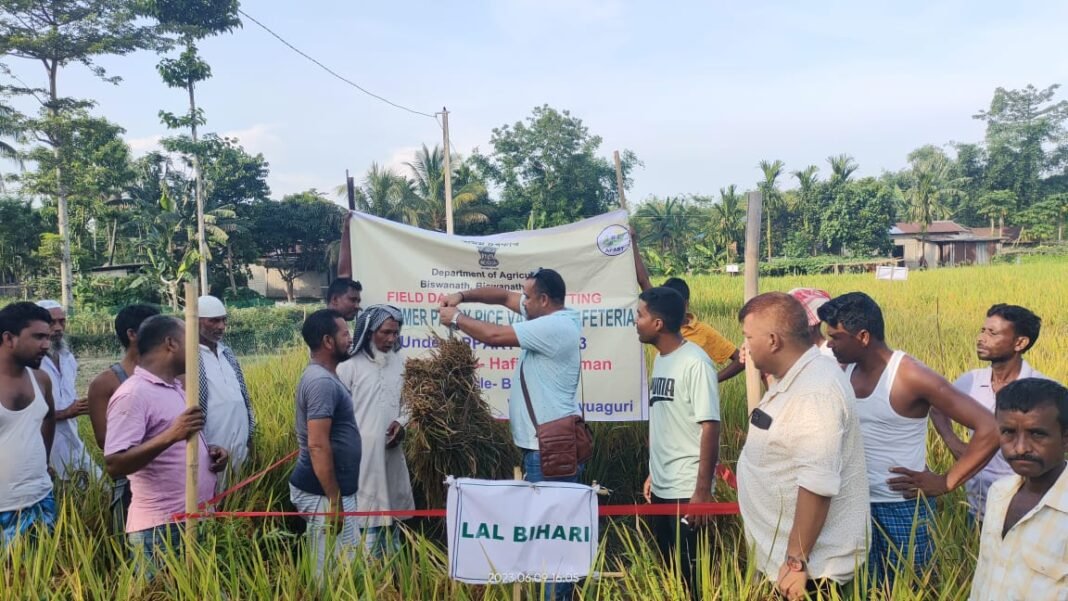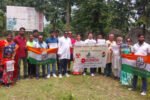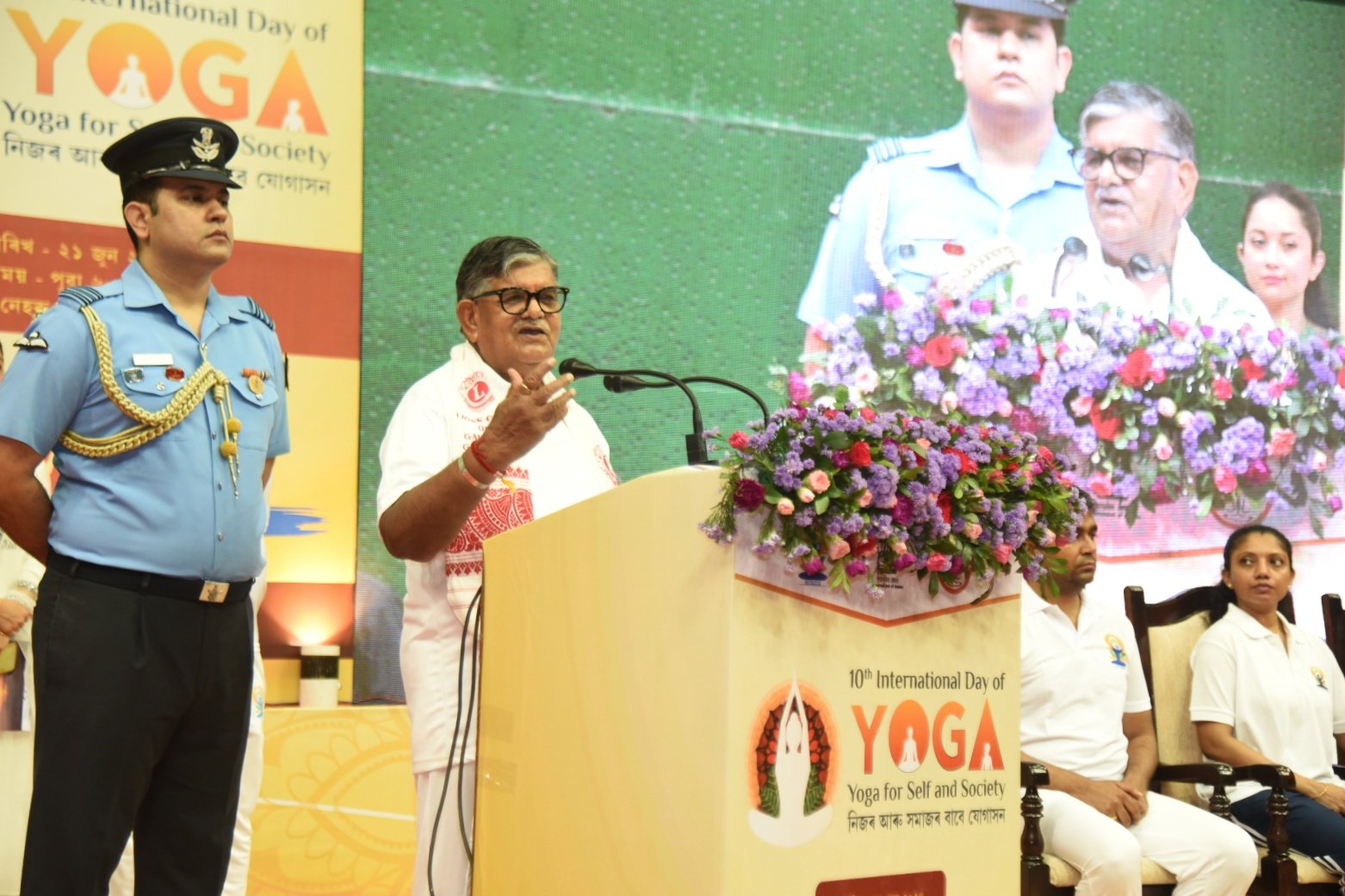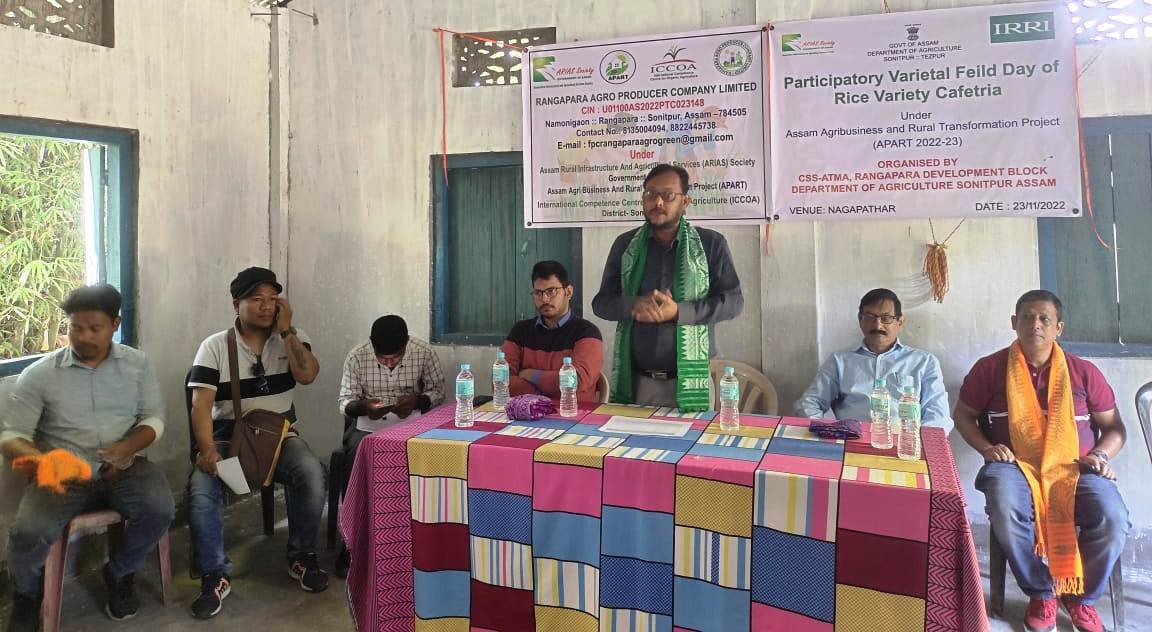HT Bureau
GUWAHATI, June 9: Swuaguri Village, located in Biswanath district, Assam, is witnessing a remarkable agricultural revolution with the implementation of the Crop Cafeteria initiative. This innovative project, carried out in partnership with the esteemed International Rice Research Institute under the Assam Agri Business Rural Transformation Project, aims to revolutionise farming practices in the region. By fostering knowledge exchange and collaboration among agricultural experts, local authorities, and forward-thinking farmers, the Crop Cafeteria is driving positive change within the farming community.
Led by Pradip Talukdar, the district nodal officer of APART (Assam Agri Business Rural Transformation Project), the Crop Cafeteria showcases and educates farmers about various paddy varieties. With an impressive collection of ten different paddy varieties on display, farmers have the opportunity to learn about their distinct characteristics, cultivation techniques, and potential benefits. Armed with this knowledge, farmers can make informed decisions regarding the selection and cultivation of suitable paddy varieties tailored to their specific farming requirements. Talukdar also provides valuable insights on different seed types, ensuring farmers have access to high-quality seeds to maximise their crop yields.
Renowned for his expertise in agricultural practices, BTM Chakrapani Medi has developed a comprehensive package of rice cultivation practices exclusively for the Crop Cafeteria. This package serves as a valuable guide for farmers, detailing essential steps, techniques, and best practices to achieve optimal results in rice cultivation. By implementing these practices, farmers can enhance their productivity and profitability while adopting sustainable farming methods.
ADO Manash Pratim Das plays a crucial role in educating farmers about pests and diseases affecting different rice varieties within the Crop Cafeteria. Through detailed information on pest identification, prevention, and treatment methods, Das equips farmers with the necessary tools to effectively combat these challenges. Additionally, Das shares insights on mustard procurement and the PM-Kisan scheme, enabling farmers to access government support and assistance for their agricultural endeavours.
Pankaj Baruah, a research technician from APART, spearheads the crop cutting program within the Crop Cafeteria. Through meticulous data collection and analysis, Baruah ensures accurate assessment of crop yields, providing valuable information for farmers, researchers, and policymakers. This data-driven approach empowers stakeholders to make evidence-based decisions, optimise resource allocation, and promote sustainable agricultural practices.
The Crop Cafeteria initiative has garnered widespread participation and appreciation from the local farming community. Progressive farmer Hafijur Rahaman shared his positive feedback during the program, highlighting the significant impact the Crop Cafeteria has had on his farming practices. Rahaman praised the knowledge and resources available at the cafeteria, which have empowered him to make informed decisions, improve crop yields, and enhance his livelihood.
The program witnessed the presence of key individuals, including Raj Sarmah, assistant agriculture inspector of Biswanath; Kankana Borah, ATM (assistant technology manager); Ripunjoy Das and Hemanta Khanal, both AEA (agricultural extension assistant); Mohendro Boro, ATM Sakomatha, along with 50 enthusiastic farmers. Their active participation demonstrates their commitment and enthusiasm in adopting progressive agricultural methods and driving positive change in the region.
Implemented under the Assam Agri Business Rural Transformation Project in collaboration with the International Rice Research Institute, the Crop Cafeteria in Swuaguri village, Biswanath district, serves as a model for sustainable agricultural development.












